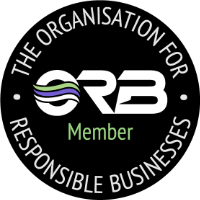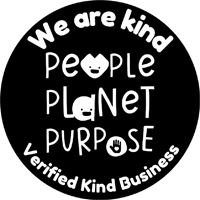An insight into SEO with Rand Fishkin
We are pleased to say that recently through some fortunate events we had the pleasure of speaking with Rand Fishkin. Rand Fishkin is well respected within the SEO industry, with a list of accolades and achievements.
Rand Fishkin is the CEO of SEO software company; Moz. He co-authored the Art of SEO from O’Reilly Media, co-founded Inbound.org. He was named on PSBJ’s 40 Under 40 List and BusinessWeek’s 30 Best Tech Entrepreneurs Under 30.
We jumped at the opportunity of speaking to someone so knowledgeable on the movements and developments of internet marketing. We fired some questions over to him and Rand was kind enough to answer. The questions and answers apply to both people within the industry and businesses looking for someone to rely on to provide internet marketing.
1. SEO is now a large area of specialist activities. If you were to single out one part to focus on what would it be?
It really depends on what you’re hoping to accomplish. If you need to a be a great individual contributor on a relatively small marketing team, you likely need to eschew specialization in favor of building a great, holistic SEO & inbound marketing program. If you have a larger team, greater specialization is possible. This holds true for consultants as well. Though in consulting, it’s OK to be hyper-specialized and have folks buying your services for very particular needs
2. With so many ways to drive traffic to a website, do you believe being ranked high in search engines is still the number one priority?
Again, the answer is that it depends. If you’re focused on an area where potential customers are conducting lots of search queries, then yes. If your’e in a field where people don’t yet know about your product or service and thus, aren’t searching for it, content marketing, social media and SEO in related queries / fields may be more important.
3. What would your advice be to small business when hiring SEO consultants?
Learn the basics of the profession first. If you spend 45 minutes reading http://www.seomoz.org/beginners-guide-to-seo or something similar, you’ll likely have a far better sense of who’s a legitimate provider and who might not be qualified to provide SEO services (sadly, a lot of folks who shouldn’t be professional SEOs try to sell themselves as such).
I’d also suggest checking out these two resources on the topic: http://www.seomoz.org/blog/whiteboard-friday-choosing-an-seo-consultant and http://www.portent.com/blog/seo/how-to-hire-an-seo-company-2012-edition.htm
4. The SEO world is obsessed with localised SEO, which in large localised markets is quite effective, do you think the same applies here in UK?
Absolutely. The UK has a high population density and a very digitally connected, e-commerce-savvy audience, so local SEO is a critical piece of the pie for geo-targeted businesses.
5. Link-building seems to be a minefield since the penguin updat. Using exact match anchor text seems to be a no no, would you say it’s actually more about balance?
I’d say it’s more about being authentic and building a web presence that’s not geared to game Google, but rather to serve your audience. For a long time, SEOs have been trained by the search engines’ algorithms to operate in a lot of gray areas. As Google gets more sophisticated, that training serves us less well, and we need to go back to our roots as great marketers.
6. What five things would you say to some within SEO to prepare for over the next 12 months?
-
More Penguin and Panda updates, which will mean less ability to manipulate with low quality links or content.
-
More mobile searches, but less difference in behavior between mobile vs. desktop search behavior (as people start to do everything on their mobile / tablet devices).
-
Less data from Google (e.g. keyword not provided), which means more and more tools trying to help fill in the gaps.
-
More aggressive advertising and instant answers from Google & Bing, meaning increased need to focus on the chunky middle and long tail rather than just the head terms
-
Greater use of social media and content marketing by your competition – so hopefully you’re ready to stand your ground in these critical fields (both of which feed into SEO)
7. Are you more fan of engaging content or search engine friendly content?
Engaging! Search-friendly is important, but if you have a site that delights and engages users, you’re 80% of the way to having great SEO success, and making the UI more search-engine friendly is a comparative walk in the park (assuming you can get team buy-in).
8. What are your favourite metrics when measuring success?
I actually did an entire thread on Google+ about this: https://plus.google.com/111294201325870406922/posts/ENHdyVsBNNJ
9. What is the most common mistake you see being made while doing SEO?
Nowadays, I’m seeing a lot of attempts to adhere to some perfect formula that will make the engines rank a page #1 rather than admitting there’s no way to game the algorithms like that. Great SEOs focus on delighting human beings first and being accessible to engines second.
10. Just one for fun – what’s your favourite movie of all time and why?
No way I can name just one movie! But a recent movie I loved was Moonrise Kingdom – it had absolutely incredibly visual shots, a great story, a bunch of the awkward weird emotions I felt as an early teenager magically captured on film, and Wes Anderson’s trademark oddness, which I really enjoy.
Hopefully you have found this information as useful as we have. However it is clear to see that there is no quick answer to SEO. However the focus should be to make content engaging to users, not just search engines. There will be a huge emphasis on this as the Google algorithm updates become more sophisticated. These will clear the way for high quality SEO Consultants. The mobile vs desktop battle will be interesting. The DM Lab have already noticed a difference in analytics for both organic and PPC for most of our clients. This would indicate that within internet marketing strategies, mobile marketing should be considered.
So remember:
- Work Hard
- Be Natural
- Engage
- Measure
We would like to thank Rand Fishkin for providing these answers. Also a big thank you to the guys over at Moz. Their software has allowed us to provide SEO to many clients.
Connect with industry leader Rand Fishkin here:
- Rand’s Personal Website – RandFishkin.com







